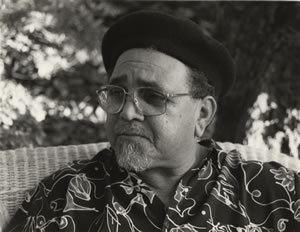Ron Chisom
Thirty years ago, Ron Chisom, a medical researcher at Louisiana State University Medical School, was approached by a group of heroin addicts from Treme, a black community at the edge of New Orleans’ French Quarter. They wanted help to overcome their addictions and to change the spiral of poverty, racism, and despair that had shaped their lives, but were afraid that turning to existing clinics and social services would mean arrest or imprisonment. Ron agreed to help and began reaching out to the Treme community. Starting with neighborhood clean-up campaigns, Ron mobilized the community against the conditions that encouraged addiction and violence.
A native of New Orleans, Ron had started out as a custodial worker at Louisiana State University (LSU). As a civil servant, he had worked his way up to the position of medical researcher. He had a family to feed and enjoyed his hard-earned position at the medical school. But, as he says, “there was something in me that wanted to do more.” His work from Treme broadened, and eventually he became involved in tenant struggles and low-income housing reform. While working his day job at LSU, Ron spent ten years organizing in the Treme community.
As he gained experience organizing, people began to contact him about starting task groups and committees in other New Orleans communities. Ron joined the Southern Organizing Committee (SOC), and gave up his medical research position to work with activists from all over the South. He began to appreciate the need for training that would guide people like himself and help them to avoid the pitfalls he had encountered in his early organizing days. “I realized that most of the training I had included no discussion about dealing with racism—and that we needed that to be effective,” he says.
Through SOC, he met Dr. Jim Dunn, an organizer from New York. After many long discussions, the two decided to found their own institute to train organizers to combat racism in institutions of all kinds—from churches to businesses to non-profit groups. Surviving at first on sporadic contributions and grant money, The People’s Institute for Survival took several years to establish. During this time, Ron and his family were supported in large part by his wife’s teaching job. But eventually The People’s Institute work became a national organization with over 20 trainers leading workshops all over the country. “People come to us when they have a problem with racism in their organization,” he says. “Often they don’t like to call it that, but [they come because] they can’t get people of color on their board or because there are negative feelings between two groups of employees.”
Ron has continued organizing against racism outside of the Institute as well. One of the most challenging, but ultimately most rewarding, issues he worked on was changing the historically all-white status of the Louisiana State Supreme Court. In 1986, Ron teamed up with an attorney to challenge the structure of the New Orleans voting districts that made it nearly impossible for a black justice to be elected. After ten years of legal battles under the Voting Rights Act, they succeeded in getting their case to the United States Supreme Court. The ensuing decision forced the addition of a seat to the Court and resulted in the election of Bernadette Johnson, the first black on the Louisiana State Supreme Court.
Ron Chisom takes heart in victories like this one and in the growing national network he has created to battle racism at all levels in our society.
 Photo by Dorothea von Haeften
Photo by Dorothea von Haeften